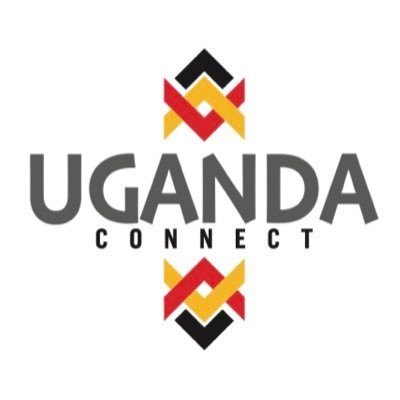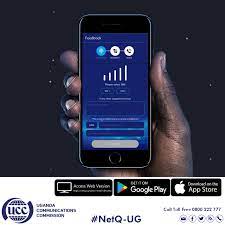Project Description
Remote communities not only face the absence of water and energy but also lack proper connection to the outside world. The initiative aims to provide essential communication devices, reliable internet connectivity, and hands-on training in computer programming and coding. This will enable community members to develop innovative solutions tailored to their specific needs, particularly in areas such as education, agriculture, infrastructure, and healthcare.
These facilities will open up their world in many aspects like awareness, knowledge, and access to other people and information around the world and this will improve and speed up the development of all our other projects within education, agro, infra, art and healthcare.
Challenges
- Limited access to communication devices and reliable internet connectivity in remote areas.
- Lack of computer programming and coding skills among community members.
- Insufficient ICT-related learning materials adapted to the community's needs.
- Ensuring long-term sustainability and community ownership of the program.
Solutions
- Provide smartphones, laptops, and necessary networking equipment to ensure reliable internet connectivity for the community.
- Introduce a comprehensive computer programming and coding curriculum tailored to the community's needs.
- Recruit and train local instructors to deliver the curriculum and provide ongoing support.
- Develop comprehensive ICT-related learning materials, including textbooks, online resources, and interactive tutorials.
- Facilitate regular workshops and hackathons to encourage community members to ideate and develop digital solutions.
- Engage with local authorities and community leaders to ensure long-term ownership and sustainability of the program.
Scope
- Phase 1: Preparation stage, Basic IT Skills and Communication Devices (12 months)
- Provide essential communication devices, such as smartphones (60) and ( tbd). laptops, to the community.
- Establish a community technology center as a hub for digital learning and solution development.
- Design and deliver a comprehensive computer programming and coding curriculum tailored to the community's needs.
- Train 10 local instructors to deliver the curriculum and provide ongoing support.
- Conduct training sessions for 25 community members, with a focus on youth and women.
- Develop comprehensive ICT-related learning materials, including textbooks, online resources, and interactive tutorials.
- Phase 2: Advanced Programming and Application Development (12 months)
- Facilitate workshops and hackathons to encourage 20 selected community members to develop digital solutions.
- Provide mentorship and technical support throughout the solution development process.
- Showcase and promote the community-developed solutions to potential partners and investors.
- Establish a monitoring and evaluation framework to track the program's impact.
- Engage with the community leaders to ensure long-term ownership and sustainability.
- Explore revenue-generating opportunities to ensure the program's financial sustainability.
Project Breakdown
- Stage 1: Hardware and Infrastructure Deployment [30%]
- Provide essential communication devices and networking equipment. (to do)
- Establish a community technology center as a hub for digital learning and solution development. (to do)
- Stage 2: Curriculum Development and Training [20%]
- Design a comprehensive computer programming and coding curriculum. (doing)
- Train 10 local instructors to deliver the curriculum and provide ongoing support. (to do)
- Conduct training sessions community members, with a focus on youth and women. (to do)
- Stage 3: Learning Materials Creation [20%]
- Develop comprehensive ICT-related learning materials. (doing)
- Ensure the materials are accessible, engaging, and adaptable to the community's learning needs. (to do)
- Stage 4: Community Engagement and Solution Development [20%] (to do)
- Facilitate workshops and hackathons to encourage community members to develop digital solutions. (to do)
- Provide mentorship and technical support throughout the solution development process. (to do)
- Showcase and promote the community-developed solutions to potential partners and investors. (to do)
- Stage 5: Monitoring, Evaluation, and Sustainability [10%]
- Establish a monitoring and evaluation framework to track the program's impact. (to do)
- Engage with the community leaders to ensure long-term ownership and sustainability. (to do)
- Explore revenue-generating opportunities to ensure the program's financial sustainability. (to do)
Expected from Project Facilitator
- Coordinate project activities and ensure timely completion.
- Develop and manage project budgets and resources.
- Ensure compliance with project timelines and milestones.
- Establish relationships with community leaders and stakeholders.
- Conduct community needs assessments and gather feedback.
- Promote the project and its objectives to the community.
- Design and deliver training sessions for community members.
- Provide technical support and mentorship to community members.
- Ensure the development of comprehensive ICT-related learning materials.
- Facilitate workshops and hackathons to encourage community members to develop digital solutions.
- Showcase and promote community-developed solutions to potential partners and investors.
- Establish a monitoring and evaluation framework to track the project's impact.
- Collect and analyze data to measure project success.
- Report project progress to the review committee.
- Engage with community leaders to ensure long-term ownership and sustainability.
- Explore revenue-generating opportunities to ensure the program's financial sustainability.
- The project facilitator will report to the review committee of the organisation, providing regular updates on project progress and achievements.
Definition of "Done"
- Provision of essential communication devices(60) and reliable internet connectivity to the community.
- Successful establishment of a community technology center as a hub for digital learning and solution development.
- Completion of the computer programming and coding curriculum training for 25 community members, with a focus on youth and women.
- Development of comprehensive ICT-related learning materials that are accessible, engaging, and adaptable to the community's needs.
- Successful facilitation of workshops and hackathons, resulting in the development of at least 5 community-driven digital solutions.
- Effective monitoring and evaluation framework in place, demonstrating the project's impact on the community.
- Established long-term ownership and sustainability plan, including revenue-generating opportunities, to ensure the continuity of the program.
Impact Assessment
- to be defined



